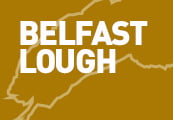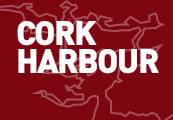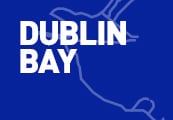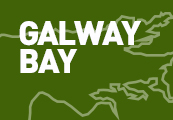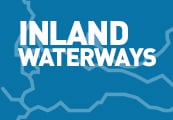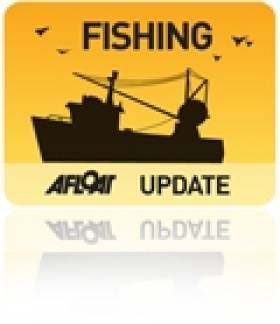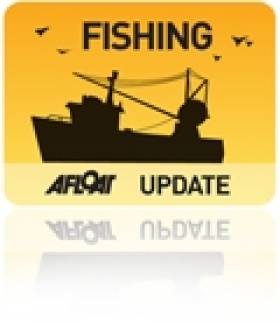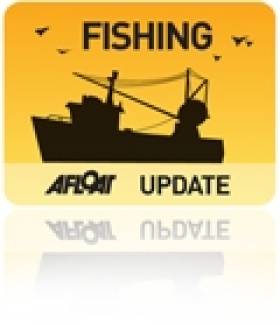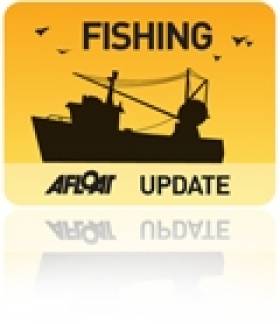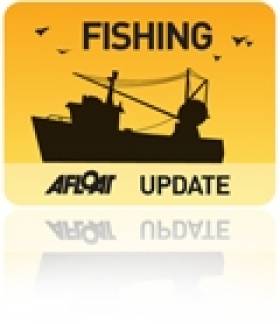Displaying items by tag: quotas
#Fishing - Marine Minister Simon Coveney yesterday (10 November) held a bilateral meeting with the new French Fisheries Minister Alain Vidalies in Brussels.
The meeting was organised to prepare for negotiations on the 2015 fish quotas which will be decided at the Fisheries Council on 15 and 16 December.
This was the first meeting between Minister Coveney and Minister Vidalies.
“France and Ireland have important shared fisheries in the Celtic Sea," said Minister Coveney. "I met Minister Vidalies to discuss with him the issues of importance relating to the management of these fisheries.
"I pointed out that the Irish and French fishing industries have a strong working relationship and that I wanted to ensure that this relationship is fully reflected at political level.”
The minister added: “There are particular issues arising in the Celtic Sea and our industries have worked together to bring forward measures to increase selectivity and reduce discarding of young fish. The EU Commission has proposed very severe quota cuts to the key cod and haddock fisheries.
"I agreed with Minister Vidalies that we will work closely over the coming weeks to secure agreement to a package of measures involving improved selectivity measures and set quota levels that take into account the most up to date scientific advice.“
The EU Commission has published its proposals for Total Allowable Catches and quotas for 2015. The commission has proposed a 64% quota cut for Celtic Sea cod for 2015 and a 41% cut for haddock in the Celtic Sea. The EU Commission has yet to make its proposal for the Celtic Sea whiting and prawn quotas for 2015.
Submissions from all stakeholders have been sought by 21 November to inform a Sustainability Impact Assessment which will be presented to the Oireachtas by Minister Coveney on 2 December.
Quota Cuts 'Threaten Jobs' In Irish Fishing Industry
#Fishing - Marine Minister Simon Coveney has defended a deal reached in Brussels that will see a reduction in Ireland's quotas for prawn and haddock, which some argue will cost the economy many millions of euros.
As The Irish Times reports, the Federation of Irish Fishermen (FIF) says as many as 350 jobs could be lost following the EU Fisheries Council's agreement to cut the Irish prawn quota by 9% and the haddock quota by a third - a move FIF's chair Francis O'Donnell described as "a charter for discards".
O'Donnell says that the cuts to two of Ireland's most valuable catches, plus similar reductions for cod and whiting, will mean an 8% overall income loss for the Irish fishing fleet - despite significant and welcome quota increases for hake (49%), megrim in the north-west (20%) and monkfish in the south-west (15%).
Defending the deal, Minister Coveney says people "need to look at the whole package", emphasising that the "overall value of fishing opportunities" is the same as last year, at a value of €250,000, which in his view "can keep the fishing fleet intact, and commercially viable".
The Irish Times has much more on the story HERE.
Coveney Blasts Iceland's 'Irresponsible' Mackerel Quota
#Fishing - Mackerel quotas will be the focus of discussions among European fisheries ministers in Brussels today as Ireland seeks a reduction of Iceland's share.
As RTÉ News reports, Marine Minister Simon Coveney will seek "strong and decisive action" against Iceland and the Faroe Islands unless the European Commission reports progress in talks over the realignment of mackerel catch limits.
Iceland's quota for mackerel increased from 2,000 tonnes in 2009 to a whopping 146,000 tonnes just two years later as stocks of the staple fish soared - partly due to migration from more southerly European waters.
But Minister Coveney has blasted Iceland's move as "irresponsible and unacceptable fishing".
The talks come in the wake of fruitful reform of the Common Fisheries Policy led by the minister as president of the EU Fisheries Council during Ireland's EU Presidency in the first half of this year.
Irish Fisheries Deal Criticised By Stakeholders
#Fishing - The EU fisheries deal secured by Marine Minister Simon Coveney in Brussels yesterday has been variously described as "horrendous" and "a mixed bag" by Irish fishing industry stakeholders, as The Irish Times reports.
Yesterday Minister Coveney said he was pleased to secure "a good deal for Irish fishermen" after difficult negotiations, one "that will support our fishing industry over the coming year and which is sustainable in terms of the fish stocks on which we are dependant".
A total in excess of 216,000 tonnes of fish quotas is available to Irish fishermen in 2013 under the deal, split between more than 35,500 tonnes of whitefish and 180,000 tonnes of pelagic fish such as herring and mackerel.
But Ebbie Sheehan, chair of the Irish Fishermen's Organisation, described the deal as "horrendous" - singling out cuts to Ireland's haddock and monkfish quotas, species of which he said "there is an absolute abundance".
Meanwhile, Federation of Irish Fisherman chair Eibhlin O'Sullivan, while welcoming the increased quotas for prawns and blue whiting, claimed the agreement was "a mixed bag" for Ireland, noting that the cut in the haddock quota runs contrary to moves to bring and end to fish discards - a process the minister committed to supporting earlier this year.
The Irish Times has more on the story HERE.
European Commission Penalise Spanish for Over-fishing
In a move to protect dwindling fish stocks, the European Commission recently took decisive action by significantly reducing Spain's mackerel quotas over the next few years as a result of over-fishing. This over-fishing of mackerel by the Spanish has been of major concern to the Irish fishing industry and was brought to the attention of the Commission by the Sea-Fisheries Protection Authority (SFPA) and other bodies.
Spanish fishermen landed almost twice as much mackerel in 2010 from the Cantabrian Sea, in the southern part of the Bay of Biscay, as they were permitted. Through their investigations, the European Commission discovered that the mackerel catch exceeded Spain's quota in the year 2010 by 19,621 tonnes. The European Commission has now passed a regulation reducing Spain's future quotas to account for the excess catches. Spain is obliged, in the period between 2011 and 2015, to return twice the amount of mackerel wrongfully caught.
In order to help combat over-fishing the SFPA operates a round the clock monitoring and surveillance programme to ensure the effective control of fish catches and landings. To promote a culture of compliance with National and EU legislation, landings by Irish, EU and Third Country vessels are inspected by the SFPA in Irish ports. Sea-Fisheries Protection Officers engage in a range of at-sea inspection programmes including both inshore and offshore patrols in conjunction with the Naval Service and Joint inspection patrols with other Member States operating in Irish waters and in those of other Member States.
The SFPA will work with Member States and with the Community Fisheries Control Agency (CFCA) based in Vigo, Spain, when a specific control and inspection programme for pelagic fisheries in Western Waters of the North East Atlantic is established - this is expected to be adopted in the near future. This will allow for the co-ordination of joint control, inspection and surveillance activities by Member States for these pelagic fisheries.
Peter Whelan, Chairman of the SFPA said: "The recent decision by the EU to impose sanctions on Spain for over-fishing and to protect the valuable mackerel fishery is significant. There is a need for all Member States to work together and to comply with the Common Fisheries Policy's rules in order to ensure the sustainable development of fisheries. The role of the SFPA supports profitable, sustainable, managed fisheries at a time when the fishing industry faces many challenges. Effective monitoring and control systems safe-guards the good reputation of Irish food producers in the international marketplace and protects Irish taxpayer from the threat of large fines being imposed when non-compliances with the Common Fisheries Policy are encountered. The SFPA will continue with our aim of working with other Member States to promote a uniform standard of monitoring, control and surveillance."
EU 'Must Assist' Irish Fishing in Reviving Stocks
The Irish Seal Sanctuary has called on the EU to assist fishermen in the switch to selective fishing gear to help restore viable stocks in Ireland's waters, the Irish Environment Network reports.
EU Commissioner Maria Damanaki had threatened to close the Irish Sea as well as seas off the west of Scotland if nothing is done to allow the drastically low stocks of cod to recover to a sustainable level.
But the sanctuary's Sea Fishery Advisory Group believes that trawling in the Irish Sea would only need to be suspended for a period long enough to allow one year's class of fish to mature and spawn.
“We do not seek a closure, as there are selective methods to catch prawns, which the smaller boats could easily use," said a spokesperson, who added that "many fishermen consider the Irish Sea, a relatively small shallow sea, an important spawning and nursery area for much of our national waters.
"Fish spawned in the Irish Sea could help repopulate the areas north and south of it, if they had the chance,” the spokesperson added.
The Irish Times reports that Commissioner Damanaki had upset the Irish fishing industry with her hard line proposals to slash quotas for cod in the Irish Sea and the west of Scotland and close those fishing areas by 2012.
The EU's annual negotiations on European fishing rights concluded this week with concessions that will see the industry as a whole face a 0.9% reduction in quota.

